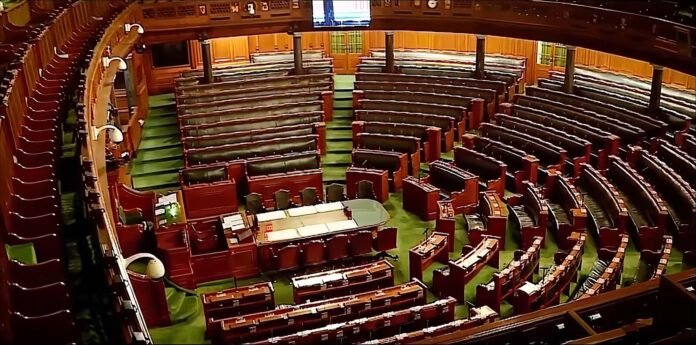[ad_1]
India’s political landscape witnessed unprecedented chaos as Union Home Minister Amit Shah introduced three controversial bills that could automatically remove the Prime Minister, the Chief Minister, and the Ministers from office if they remain in custody for 30 consecutive days. The Constitution (130th Amendment) Bill, 2025, along with companion legislation for Union Territories and Jammu & Kashmir, sparked fierce protests with opposition MPs tearing up copies of the bills in Parliament.
The constitutional amendment targets a glaring loophole in India’s governance framework. Currently, no provision prevents ministers from holding office while incarcerated, leading to the embarrassing spectacle of leaders running governments from jail cells. The new legislation mandates automatic removal on the 31st day of custody for offences punishable by five years or more imprisonment.
30-day custody rule forms the crux of these reforms. Ministers facing serious criminal charges must secure bail within a month or face automatic dismissal, though they can be reinstated upon release. The President removes Union Ministers at the Prime Minister’s advice, while Governors handle state ministers at the Chief Minister’s recommendation. If no recommendation comes by the deadline, removal becomes automatic.
Opposition leaders launched scathing attacks, branding the bills “draconian” and “Hitleresque.” AIMIM chief Asaduddin Owaisi warned of a “police state,” while Congress MP Priyanka Gandhi termed it “anti-constitutional.” Critics argue the legislation provides central agencies with unbridled power to destabilise opposition-ruled states through arbitrary arrests.
The government’s anti-corruption agenda drives these reforms. Shah cited recent controversies involving leaders like former Delhi CM Arvind Kejriwal, who governed from jail for months, and Tamil Nadu Minister V Senthil Balaji, who retained his portfolio despite arrest. The Home Minister defended the move as essential for constitutional morality and good governance.
Political accountability versus federal misuse represents the central tension. While supporters herald the bills as landmark reforms that prevent the criminalisation of politics, detractors fear the weaponisation of central investigative agencies, such as the ED and CBI, which courts have recently criticised for crossing legal boundaries.
The bills now await scrutiny by a Joint Parliamentary Committee, setting up a prolonged battle over India’s democratic foundations and the balance between accountability and federal autonomy
[ad_2]
Source link

